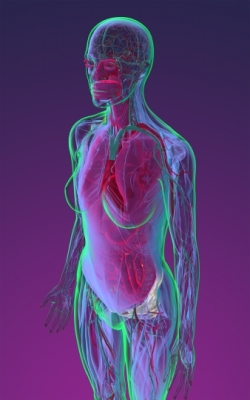Binge eating – Compulsive overeating
Description of binge eating
When compulsive overeating person often eats an unusually large amount of food and can not stop. Binge eating is often found in conjunction with bulimia nervosa (painful feeling of hunger), another eating disorder.
In some cases, overeating may occur without other eating disorders. For Example, People may feel frustrated and there are many, but can not get rid of the food by vomiting, sports or laxatives.
Women are slightly more at risk of binge eating disorder, than men. The disease reaches a peak 40-50 years.
The reasons for binge eating
It is not clear exactly, what causes binge eating disorder. Since about half of people with binge eating disorder have a history of depression, it, perhaps, related diseases.
Studies also show, that people with binge eating disorder may have other emotional problems: low self-esteem, anger, and / or obsessive compulsive disorder.
Risk factors for binge eating
Factors, which increase the likelihood of binge eating disorder:
- Obesity;
- Paul: female;
- The presence of excess weight at an early age;
- Diet (diet can cause a nervous breakdown and overeating);
- The presence of depression and / or substance abuse;
- Concerns figure.

The symptoms of binge eating
The symptoms of binge eating disorder include:
- Fast food consumption;
- Naedanie “to satiety”;
- Food intake in large quantities, when you are not hungry;
- Consumption of food in large quantities because of the psychological discomfort;
- Disgusted, depressed or guilty after eating.
Diagnosis of binge eating
The doctor asks about the symptoms and medical history, and performs a physical exam. You may be directed to the doctor, specializing in mental disorders or eating disorders.
Binge eating is diagnosed when there are at least two binge-eating episodes per week, on average for six months, as well as lack of control over eating behavior.
Treatment of binge eating
The doctor will determine the best method of treatment, which may include:
Cognitive therapy povedencheskaya
At Cognitive therapies povedencheskoy an expert will teach you, how to monitor your diet and change unhealthy eating habits. Treatment may include training respond to complex situations and changing views on body shape and weight the better.
Mezhlichnostnaya psychotherapy
When interpersonal psychotherapy consultant will help you to look at your personal relationships and make changes in the areas of, which negatively affect your life.
Medications with the binge eating disorder
For some people with binge eating disorder may be useful antidepressants.
Prevention of binge eating
There are no methods, allowing to prevent binge eating disorder. If you have small children, it is important to instill in them a positive and healthy attitude to food and body.
